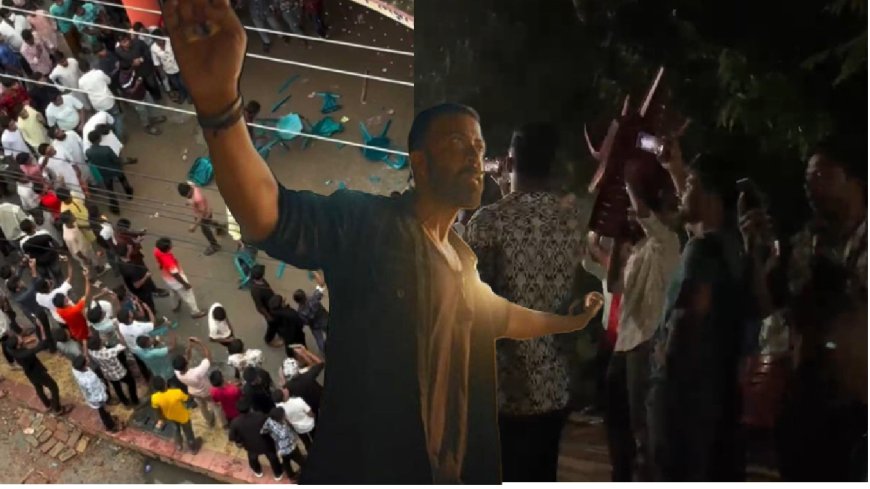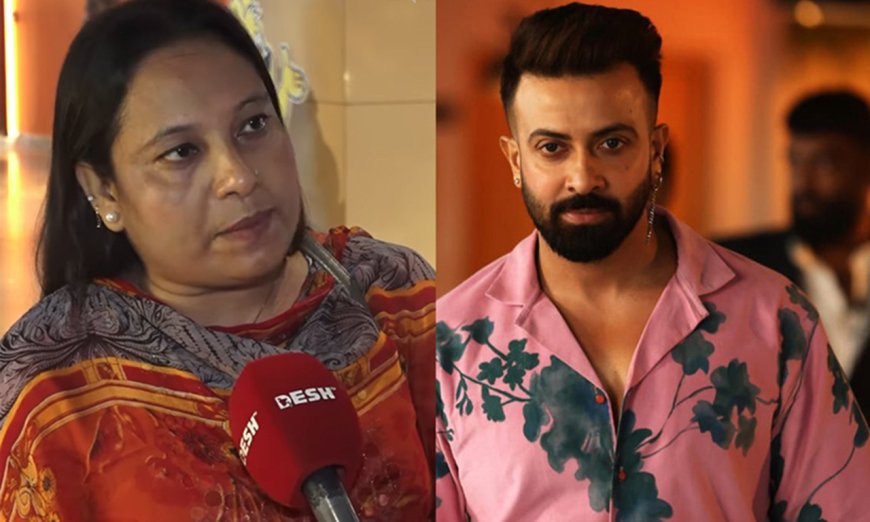Cinema Controversy: Chaos and Criticism Follow Violent Films Featuring Shakib Khan

Chaos erupted at two separate cinemas on Eid-ul-Azha afternoon after technical glitches interrupted screenings of popular Dhallywood actor Shakib Khan’s film Tandob. At Chhayabani Cinema Hall in Mymensingh, agitated moviegoers vandalized the premises and looted property. Later the same night, at around 10 PM, another mob damaged the Baishakhi Hall in Kalukhali, Rajbari, following a similar disruption caused by technical faults.
In contrast, Shakib Khan’s Borbaad, which premiered on Thursday night on OTT platform Chorki, sparked no reported incidents. However, the film has quickly gained notoriety for its graphic portrayal of obsessive love, violence, and revenge. The prevalence of drug use and violent scenes has drawn increasing concern from a section of the audience.
Amid the controversy, many viewers have taken to social media to express mixed reactions about the two films, with a growing number blaming them for influencing violent behavior among the youth. In a candid remark during an interview with a private television channel, a middle-aged female viewer directly accused the films of promoting brutality among the younger generation.

She said, “Shakib Khan didn’t leave out a single drug in Borbaad. In the end, he kills the heroine when he can’t have her. The same happens in Tandob. This generation is learning cruelty by watching these films. When they can’t get their girlfriend or boyfriend, they’re resorting to murder.”
Analyzing the themes of these films, the woman further added, “As a parent, when I come to the cinema, I can’t leave my child at home—I have to bring them with me. I feel that the new generation is heading in the wrong direction. When we used to watch Shabnur and Shakib Khan’s earlier films, there was a sense of emotion, humanity. We didn’t even know what a pistol was. But now kids learn everything from movies.”
She continued, “They’re being shown what model of gun it is, which country it’s from, and how it’s smuggled in. Is this really beneficial for us?”
Appealing directly to Shakib Khan, she said, “My child said to me, ‘Mom, I like this thing Shakib Khan does,’ and then mimicked his drug-taking gesture by pinching his nose and inhaling. I have only one request for Shakib—since he has two children, one with Apu and another with Bubly—they will learn from him. Just as my child has learned from your actions, your children will too. I urge you, please don’t promote drugs. Bring us something good. We will watch that.”
Many other parents have echoed her sentiments, voicing strong objections to the excessive violence, drug use, and bloodshed in recent mainstream Bangladeshi films. The debate continues as audiences and critics weigh the influence of cinema on real-life behavior, particularly among impressionable youth.









































































































































































































